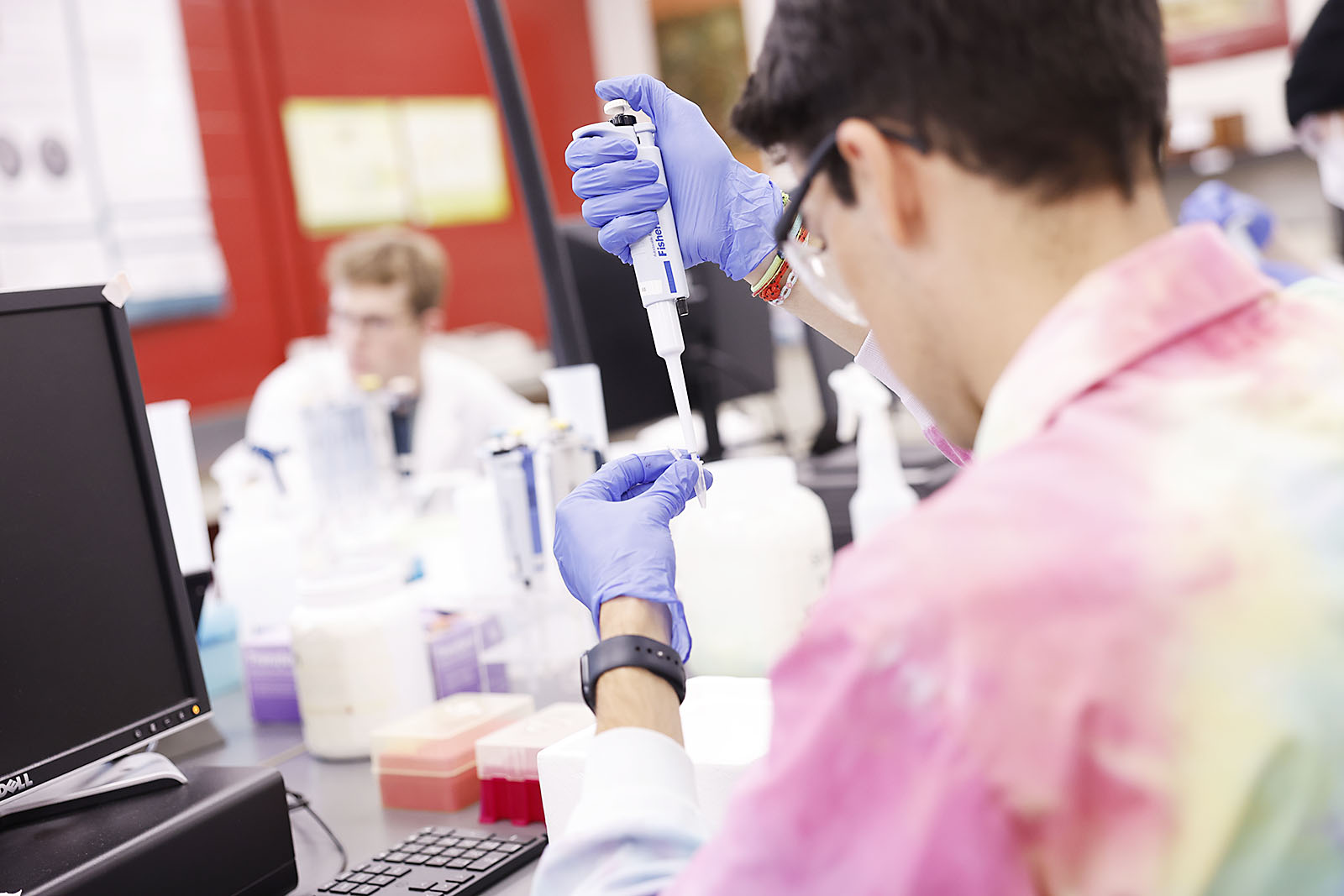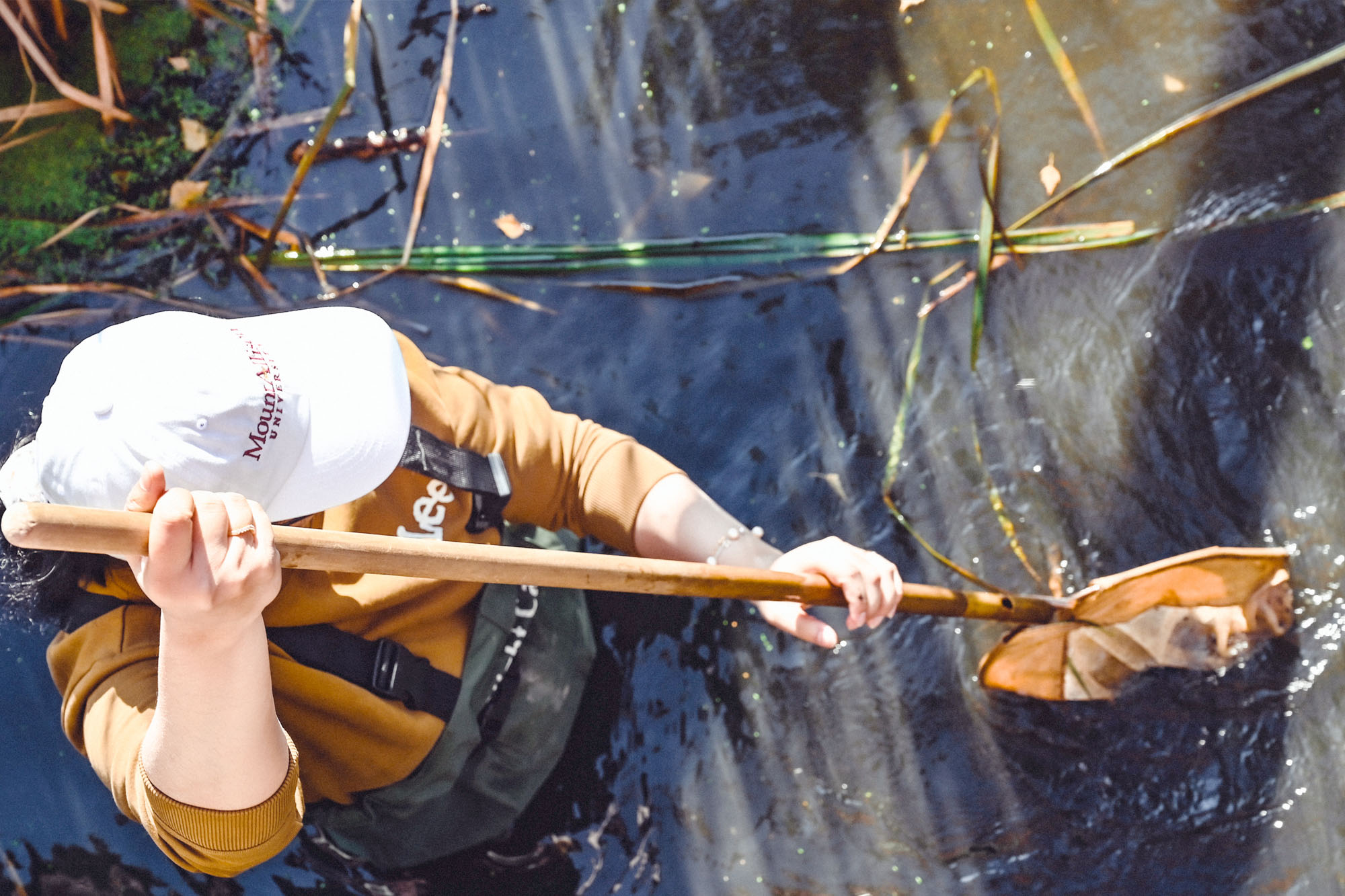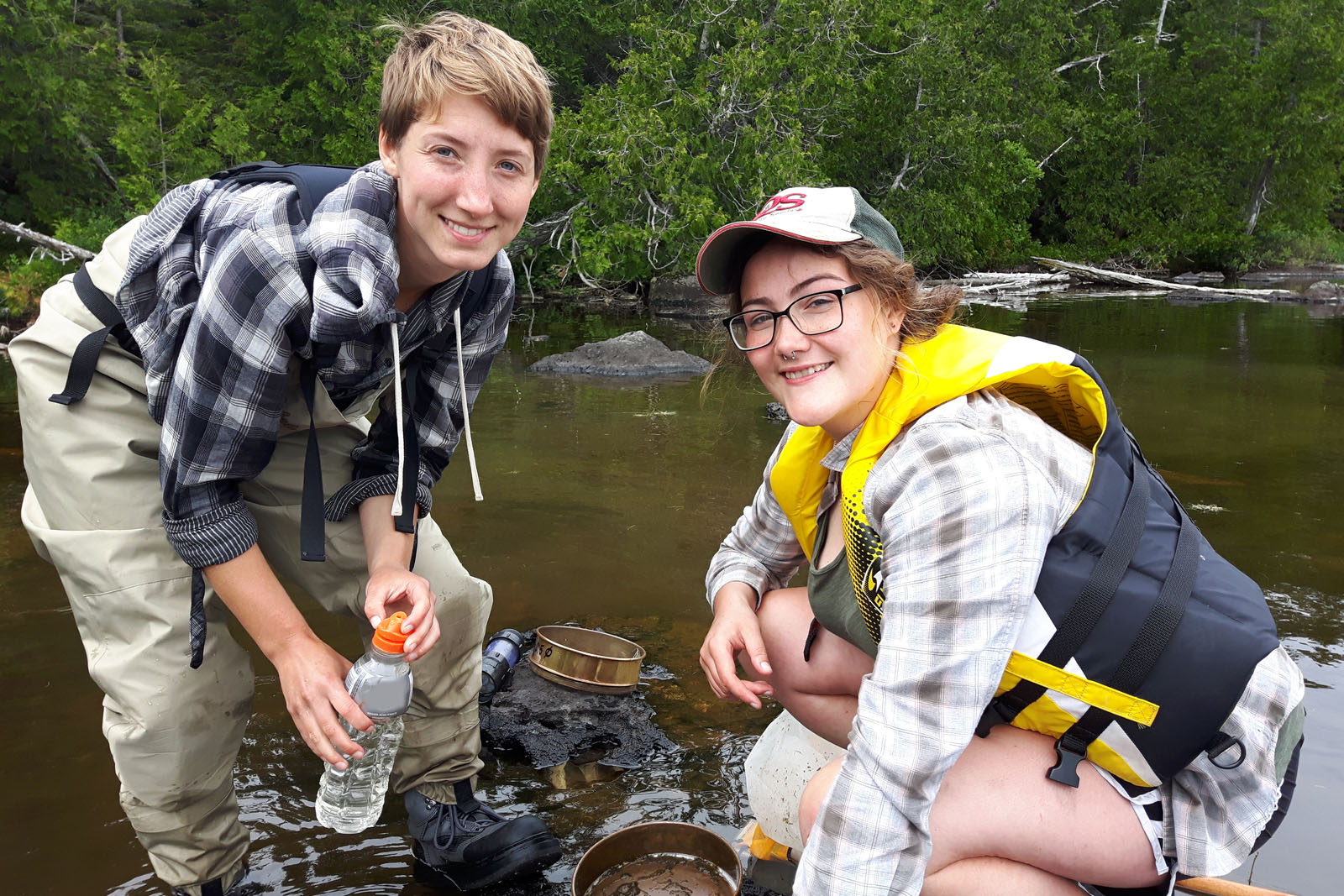Overview
Biochemistry is the study of the chemical structures and processes of living organisms. It is an inherently mechanism-focused discipline.
Accredited by the Canadian Society for Chemistry.
At a Glance
Curriculum
Why study biochemistry at Mount Allison?
The Department of Chemistry and Biochemistry emphasizes experiential learning — you will graduate with 600 to 1,200 hours of lab experience, developing important analytical and presentation skills along the way.
The program is designed to provide students with a solid science foundation in the first two years, with paths for specialization in third and fourth years.
Biochemistry students begin their studies by examining the world around them at the molecular level.
Students can pursue biochemistry as a:
- BSc major (75 credits)
- BSc honours (84 credits)
- Minor in any degree (24 credits)
Learn about the difference between a major, a minor, an honours, and a certificate.

Program highlights
Research opportunities
Research is a key component of the department's approach. You will be encouraged to take advantage of faculty-supervised independent research, job opportunities as summer research assistants, and chances to contribute to faculty research projects, which often leads to co-authoring a paper with your professor for publication.
MacCormack Laboratory
The MacCormack Lab uses a variety of physiological and biochemical techniques to study how animals adapt to environmental stressors like hypoxia, extreme temperatures, and anthropogenic pollutants. The team of researchers in this lab is made up of highly qualified Mount Allison undergraduate and master's students.
Rourke Laboratory
The Rourke Lab has a variety of research interests, including G protein-coupled receptors (GPCRs) and their roles in cell signaling and function. They also explore aspects of nanotoxicology and endocrinology, including hormone secretion with implications in obesity and diabetes.
Waller Laboratory
The Waller Lab takes advantage of the wealth of comparative genomic information to study how marine algae defend themselves against abiotic and biotic stresses in the ocean. To do this, molecular biology, protein biochemistry, and metabolomic techniques are used to dissect how algae control the enzymes responsible for making specialized biochemicals that protect algal cells.
Intro courses in biochemistry include:
- introductory biochemistry
- introductory chemistry
- cell biology
- organic or analytical chemistry
- enzymology and metabolism
Third year is a pivotal year in the program as you will take core lab courses that lay the foundation for research in biochemistry, including lab only courses like Molecular Analyses and Experiential Biochemistry.
Upper-year courses concentrate on sub-disciplines of biochemistry, with topics like:
- nucleic acids
- molecular structure of the immune system
- animal, bacterial, and plant viruses
- protein structures and function
- biochemical ecology
- lipids and membranes
- signal transduction
- animal physiology
Biochemistry is an interdisciplinary program, which means you may also take courses in biology, chemistry, physics, environmental science, and mathematics.
BIOC 1001 — Introductory Biochemistry
This course introduces current topics and advances in Biochemistry and engages students in the scope and activities of the discipline. It examines the central role of water in biological systems, leading to an introduction of acid-base equilibria, the properties of biological membranes, and the bioenergetics of solutes moving across membranes. It introduces the principles of carbon bonding and electronegativity, leading to coverage of the bioorganic functional groups, whose characteristic properties and reactions combine to create the highly complex biological macromolecule classes of carbohydrates, proteins,nucleic acids, and lipids. (Format: Lecture 3 Hours, Tutorial 1.5 Hours)
BIOC 2001 — Enzymology and Metabolism
This course examines the properties of enzymes including kinetics and regulation. It introduces carbohydrate and fat metabolism, respiratory and photosynthetic electron transport, and nitrogen assimilation and dissimilation, concentrating on key stoichiometries, structures, redox biochemistry, and bioenergetics. (Format: Lecture 3 Hours, Laboratory 3 Hours)
BIOC 3001 — Experiential Biochemistry
This course teaches students to plan and conduct a range of current biochemical analyses including spectroscopy, gas analyses, and chromatographic separations and imaging, with particular emphasis on the new opportunities opened through high-throughput computerized data capture applied to both established and new instrumental analyses. In parallel it guides students through the processes of plotting, interpreting, and presenting the meaning of their results. (Format: Integrated Lecture and Laboratory, 6 Hours)
BIOC 3041 — Nucleic Acids – Structures, Mechanisms And Regulations
This course interlinks structural, mechanistic, and regulatory aspects of nucleic acid function. It explores the structures of DNA and RNA and how DNA assembles into chromosomes. It also reviews the mechanisms of DNA replication, repair, recombination, transcription, and RNA splicing. It examines the complexity and ingenuity of gene regulation in both prokaryotes and eukaryotes. (Format: Lecture 3 Hours)
BIOC 4201 — Environmental Physiology and Biochemistry of Animals
This course in animal physiology examines the physiological and biochemical strategies animals use to survive in diverse, often stressful environments. Using primary literature from scientific journals, this course focuses on animal responses to environmental conditions such as hypoxia and anoxia, high and low temperatures, overwintering, altitude, environmental pollutants, osmotic stress, and UV radiation. (Format: Seminar 3 hours)

Faculty Spotlight
Dr. Jill Rourke
Assistant professor, Chemistry and Biochemistry
What can I do with a biochemistry degree?
Through extensive lab experience, faculty-supervised research, and close mentorship, students develop practical skills and critical thinking abilities valued by employers and graduate programs.
Recognized by Maclean's as Canada's top undergraduate university, Mount Allison's strong academic reputation helps graduates stand out as they pursue diverse career paths.
Many go on to top graduate and professional programs in medicine, dentistry, pharmacy, and veterinary medicine, while others move directly into careers in research, healthcare, and beyond.
Popular career paths for biochemistry graduates include:
- genetics researcher
- pharmacologist/pharmacist
- agricultural biochemist
- atmospheric/environmental biochemist
- public health nutritionist/dietitian
- food/nutritional biochemist
- forensic scientist
- biological oceanographer
- medical doctor
- dentist
- public/global health administration
Alumni Spotlight
Stephen Crozier ('97)
BSc (Honours), Biochemistry
Manager of research and development partnerships, The Hershey Co.

What is it like to study at Mount Allison?

Through the biochemistry program at MtA, I had amazing opportunities to engage with impactful research alongside talented professors. This was an incredibly special experience, especially as an undergraduate student, and prepared me well for my graduate studies.

The integrative nature of the biochemistry program gave me a well-rounded and detailed foundation of knowledge relevant to my future degree. In addition to learning a wide range of material, the program prioritizes critical thinking, collaboration, and professionalism. I cannot recommend this program enough to anyone looking to pursue a career in the medical/health field.




